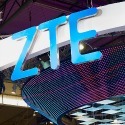ZTE Suffers $340M Net Loss on US Fine
Chinese equipment maker turns loss-making in 2016 but may have cause to feel more optimistic about its prospects this year.

ZTE's run-in with US trade authorities appears to have taken a heavy toll on the Chinese equipment maker, which has warned investors that it will report a net loss of more than $340 million for the 2016 fiscal year.
The Chinese vendor this week pleaded guilty to breaching US export rules by selling products in Iran that included components made in the US. It has agreed to pay a fine of $892 million as a penalty. (See ZTE to Pay $892M Fine to Settle US Trade Dispute.)
Provision for that fine looks to have wiped out 2016 profits: Having reported net income of about 3.2 billion Chinese yuan ($463 million) for 2015, ZTE Corp. (Shenzhen: 000063; Hong Kong: 0763) said in a preliminary results announcement that its net loss would amount to approximately RMB2.36 ($342 million) for 2016.
Net profits would otherwise have risen by 19.24%, to about RMB3.83 billion ($555 million), insisted ZTE.
The preliminary figures were disappointing in other ways, too. Operating revenues for 2016 are expected to have edged up just 1%, to RMB101.23 billion ($14.7 billion), thanks to what ZTE called a "slight increase" in sales at its carrier networks and consumer businesses.
While that increase would compare favorably with results from Sweden's Ericsson AB (Nasdaq: ERIC) and Finland's Nokia Corp. (NYSE: NOK), both of which reported a 10% sales decline for 2016, it appears to leave ZTE a long way behind local rival Huawei Technologies Co. Ltd. , which in January estimated that sales rose 32% last year. (See Loss-Making Ericsson Still Short on Vision, Nokia Upbeat on Turnaround Despite Sales Decline and Huawei's Network Sales Up Around 32% in 2016.)
Export restrictions the US imposed on ZTE last year may have had an impact on sales, preventing the Chinese vendor from obtaining hardware and software developed by US companies, although ZTE did not blame US sanctions for its poor revenue performance.
Settlement should at least allow ZTE to draw a line under the episode and focus on future business opportunities. On a more encouraging note, the company also predicted that net profit for the first three months of 2017 would be considerably higher than for the year-earlier quarter.
It is forecasting a first-quarter net profit of between RMB1.15 billion ($167 million) and RMB1.25 billion ($181 million), having generated one of RMB949.51 million ($137 million) for the same period in 2015.
For all the latest news from the wireless networking and services sector, check out our dedicated mobile content channel here on Light Reading.
Despite the financial pain caused by the US fine, investors have reacted favorably to ZTE's admission of guilt, perhaps seeing it as an opportunity for the company to turn over a new leaf and even improve relations with the US.
The vendor's share price closed up 6.07% in Hong Kong today, at 12.94 Hong Kong dollars ($1.67).
Bengt Nordström, the CEO of the Northstream consulting group, also thinks ZTE could become a much stronger force this year.
"Two or three years ago we thought ZTE would retreat to southeast Asia and be a vendor in China and neighboring markets, but they are trying to come back and establish themselves as a global player," he told Light Reading on the sidelines of last week's Mobile World Congress. "With the new management it looks like they could make a comeback."
As evidence of its progress on the international stage, Nordström cited recent reports that ZTE has landed a €1 billion ($1.1 billion) deal to upgrade networks in Italy for mobile operators Wind Telecomunicazioni SpA and 3 Italia , which are merging their businesses.
Previously ZTE's chief technology officer, Zhao Xianming stepped into the leadership role last April following the departure of former CEO Shi Lirong. He has subsequently taken a number of dramatic steps to improve compliance at ZTE, appointing a US lawyer as chief export compliance officer and introducing automated software systems to screen for export control obligations.
— Iain Morris, 

 , News Editor, Light Reading
, News Editor, Light Reading
Read more about:
AsiaAbout the Author(s)
You May Also Like




.jpg?width=300&auto=webp&quality=80&disable=upscale)







